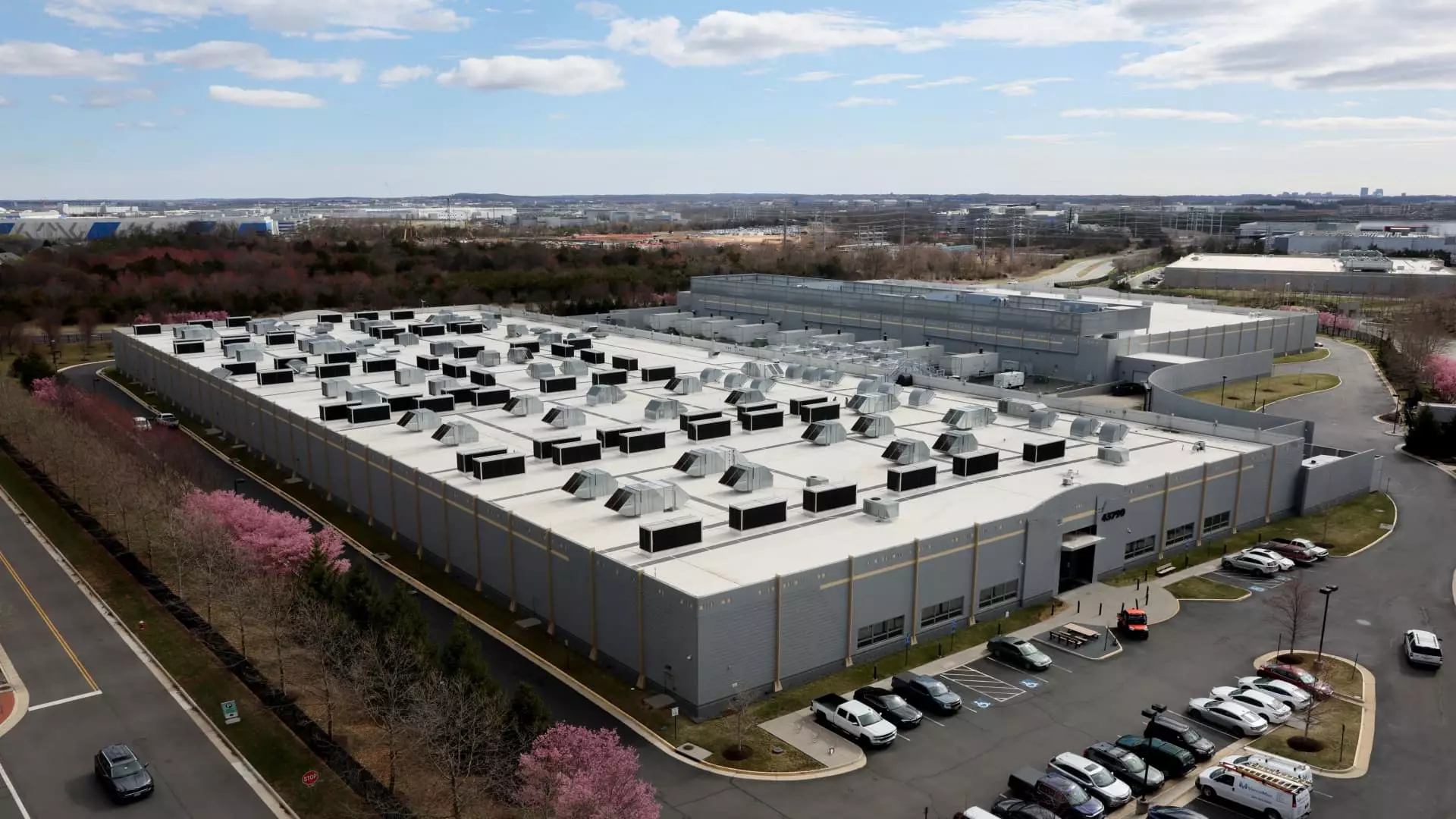In a remarkable development that highlights the increasing interplay between finance and technology, the Abu Dhabi-based sovereign wealth fund ADQ has partnered with the American private equity firm Energy Capital Partners (ECP) to establish a monumental $25 billion investment fund focused on power generation in the United States. This collaboration is not merely a financial transaction; it represents a strategic move to address the pressing energy demands stemming from an explosion of data centers and the broader technology sector. It is a bold pronouncement of intent—one that acknowledges the undeniable urgency to bolster energy production and infrastructure amid pivotal shifts in consumption patterns.
Growth in data-heavy industries calls for responsible yet aggressive investment strategies. As data centers proliferate and hyperscale cloud services dominate, the projected doubling or even tripling of electricity consumption within the next five years is staggering. With major players like Microsoft, Amazon, and Google competing for dominance in artificial intelligence, the demand for uninterrupted, high-quality energy supply will only intensify. By establishing this partnership, ADQ and ECP display not only foresight but also a commitment to aligning their ventures with future energy needs.
The Mechanism of Change
At the heart of this partnership lies a 50-50 investment strategy aimed at deploying substantial resources to enhance existing infrastructure alongside the creation of greenfield power generation sites. With plans to develop approximately 25 gigawatts of energy projects, it underscores a transformative approach that transcends mere capital flow. This initiative will likely introduce innovative solutions and renewable energy sources into the American energy landscape, which has become increasingly vital not only for economic stability but also for environmental sustainability.
The strategic maneuvering involved in establishing captive power plants, particularly in close proximity to the energy-intensive operations of tech giants, signals an era in which operational efficiency and reliability are prioritized. It’s a compelling glimpse into a future where clean energy capabilities are no longer optional but rather a necessity for any company wanting to thrive in the digital age.
A Response to Growing Demand
The motivations behind such sizable investments are rooted in statistics that are not just impressive but alarming. The surge in electricity demand in the U.S., with the potential for data centers to account for over one-third of additional demand by 2026, compels attention. This partnership stands as a direct response to this trend, with a clear commitment to pre-emptively tackle the looming energy crisis exacerbated by the relentless growth of the technology sector.
However, underlying these developments lies a nuanced conversation about energy consumption and its long-term implications. The projected global electricity consumption of data centers in 2026 is forecasted to equal that of Japan. It raises critical questions about the sustainability of such explosive growth. Autonomous technology and data processing may offer unparalleled advancements, but they also bring a considerable environmental footprint, making the choice to invest in clean energy more crucial than ever.
Global Implications of Local Investments
The partnership occurs during a notable geopolitical moment marked by the ongoing pursuit of technological prowess among nations. The UAE, historically reliant on hydrocarbon wealth, is demonstrating an evolution in its investment strategy, aiming for diversification through cutting-edge sectors like artificial intelligence and power generation. By strengthening ties with the U.S.—a nation recognized for its technological innovation—UAE authorities are not merely following trends; they are shaping the narrative of global energy infrastructure.
This critical collaboration reflects an understanding that the future of energy dependence will heavily hinge on international cooperation, technological advancement, and sustainable practices. As investments flow toward AI and energy technologies, it fosters a climate ripe for transformative breakthroughs while also allowing the UAE to assert its global standing beyond its oil-rich past.
The partnership between ADQ and ECP encapsulates far more than a financial agreement—it serves as a bellwether for the urgent and complex evolution of energy needs tied to digital economies. In a world racing towards digital transformation, these efforts pull the collective energy industry into a new era defined by collaboration, sustainability, and necessity. Engaging with these ambitious projections could very well redefine not just energy production but also the broader economic frameworks that power our future.


Leave a Reply